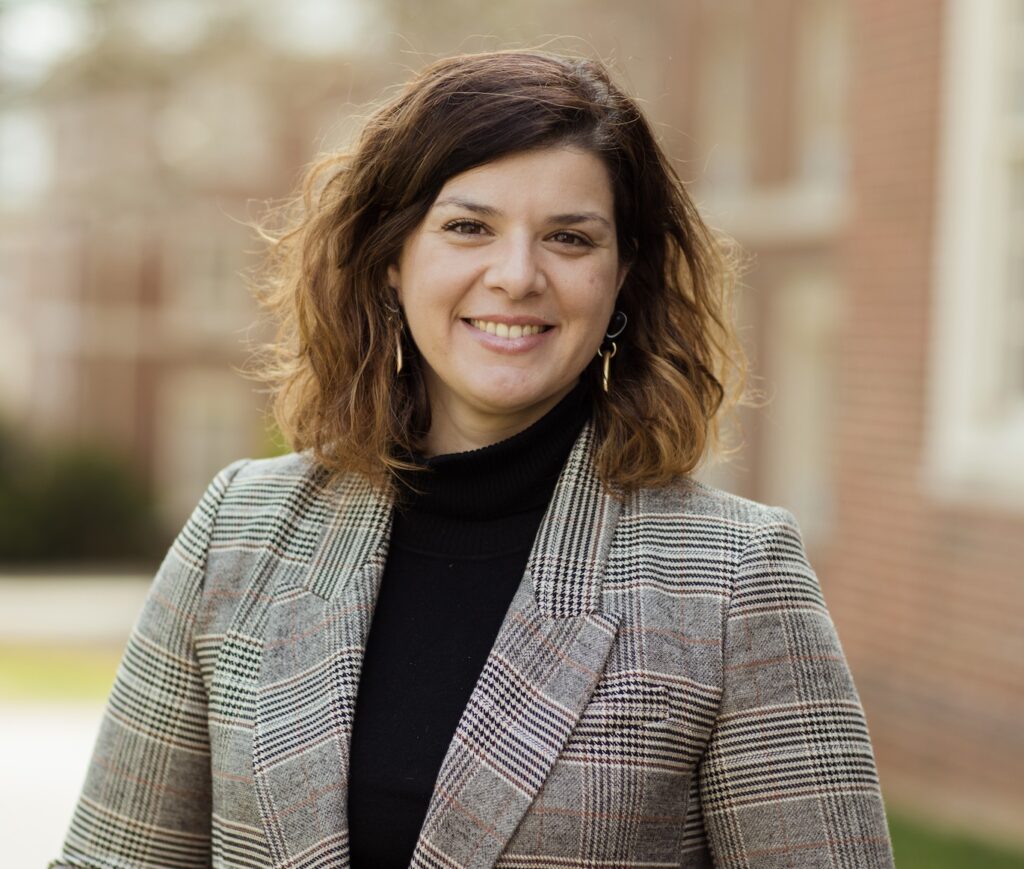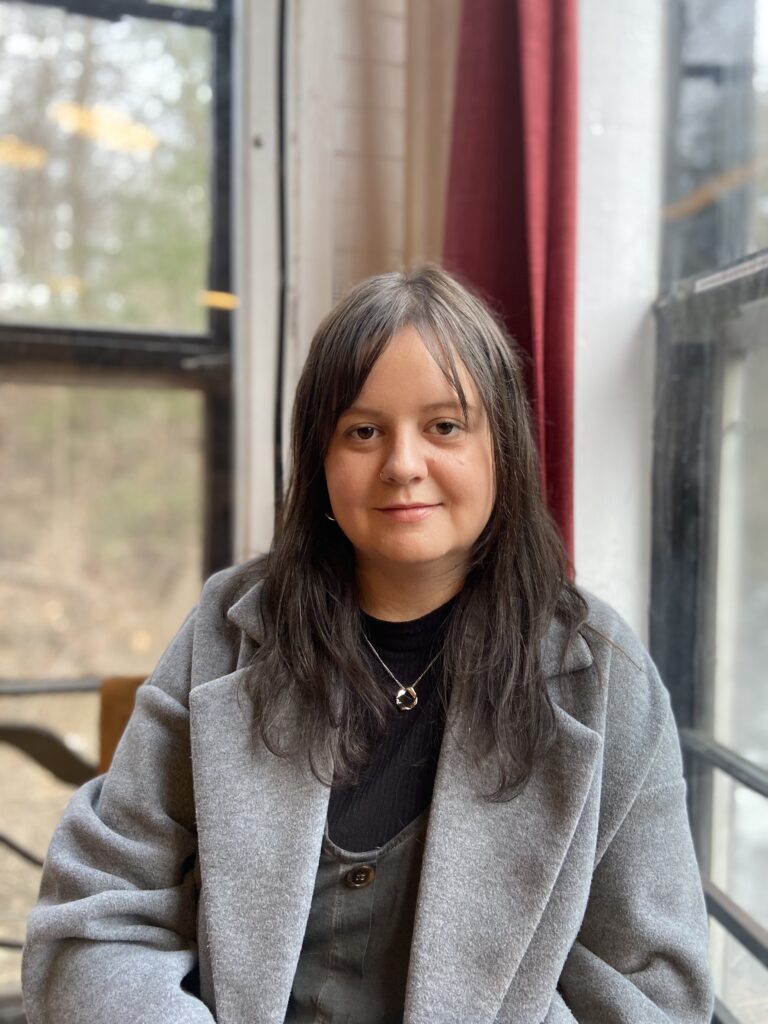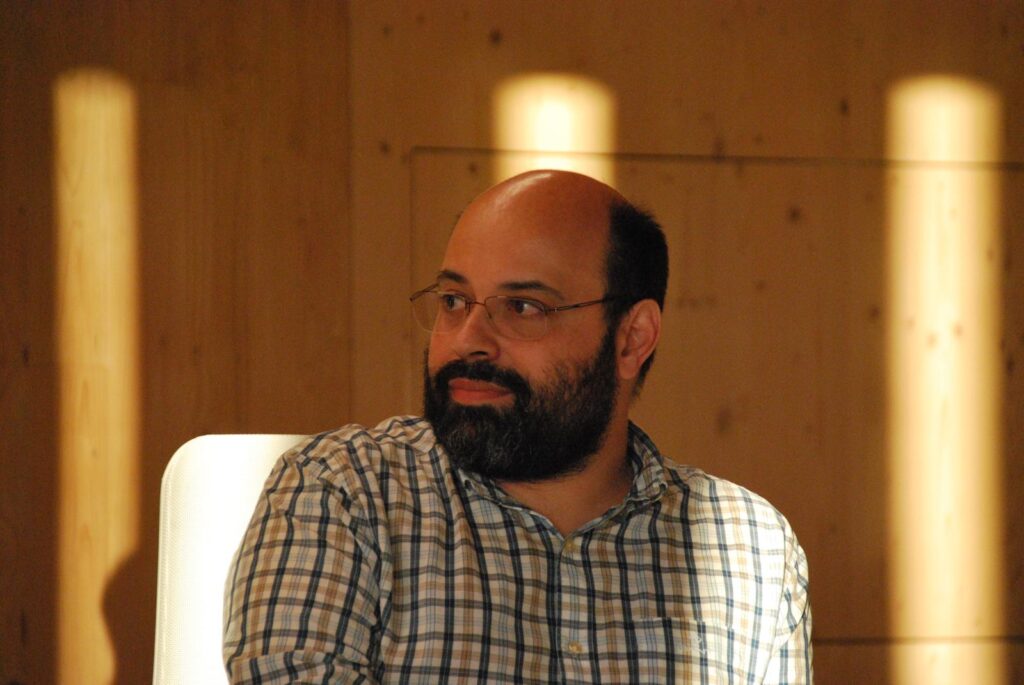Asturian Studies Constitution
Article I. Name, Object and Mission
1. This organization shall be called the Asturian Studies / Society for the Analysis of Cultural Topics and Linguistic Identities N’Asturies, the official acronym for which shall be SANTINA.
2. Its object is to increase the international visibility of Asturian Studies, while also promoting the development of collaborative projects.
3. Its mission is to foster a space for the research, teaching and dissemination of Asturian language and culture internationally.
Article II. Membership
1. Membership of SANTINA is open to all researchers and cultural creators who have a current interest in the languages and/or cultures of Asturias.
2. How to become a member:
2.1. To be considered for membership, all applicants shall follow the instructions on the website, and be nominated by two existing members of SANTINA.
2.2. Applications for membership can be made at any point during the year, but will only be approved on a bi-annual basis. The approving body shall be the Executive Committee.
2.3. To submit an abstract for the annual conference, you must first request membership by the conference’s deadline. Acceptance to the conference is contingent upon the approval of your membership application.
2.4. Honorary members shall be decided by the Executive Committee.
3. Expectations of membership:
3.1. Participation in Activities: Active participation in events, seminars, or regular meetings shall be expected to promote collaboration and exchange of ideas among members.
3.2. Members might need to contribute to research, publications, or projects relevant to the field.
3.3. Adherence to Ethical Standards: Maintaining professional conduct is crucial for membership.
3.4. Updating Personal Information: Members should keep their contact and relevant information up to date to ensure they receive notifications and communications.
4. Benefits of membership:
4.1. All members are entitled to attend the annual conference, and join the Santina e-mail list (which may only be used by SANTINA members).
4.2. Only members in good standing may vote and hold office.
4.3. Only members in good standing are able to present and/or be on the program at the SANTINA Conference.
Article III. Offices and Committees
1. The officers shall be a President; a Vice President; a Secretary and Communications Director; and the Past President (the immediately previous President) .
1.1. The President, Vice President, Secretary and Communications Director and Past President shall serve 3-year terms.
1.2. Each officer can serve a maximum of two consecutive terms in each position.
1.3. Terms of service begin on January 1st.
1.4. Officers should attend regular meetings and represent Asturian Studies in other conferences.
1.5. Duties of the officers shall include:
1.5.1. Duties of the President: identify and contact future members and collaborators; call regular meetings; networking with publishers; lead the executive meeting during SANTINA conference; call and organize the annual Asturian Studies meeting.
1.5.2. Duties of the Vice President: perform the duties of the President in the latter’s absence; write, coordinate and send newsletter; maintain webpages; communicate with the press.
1.5.3. Duties of the Secretary and Communications Director: promote events in social media; keep an updated list of members; keep the minutes of meetings; encourage and gather nominations or self-nominations for the three non-officer Executive Committee members; communicate those nominations to the membership; conduct the election meeting for said positions.
1.5.4. Duties of the Past President: maintain the roster with terms lengths for the current President, Vice President and Secretary and Communications Director; encourage and gather nominations for any of these positions; communicate the nominations or self-nominations for these positions to the membership; conduct the election meeting for said positions.
2. There shall be an Executive Committee composed by the President, the Vice President, the Secretary and Communications Director, the Past President plus three elected members.
2.1. Each of the members of the Executive Committee shall serve for 3 years in each position.
2.2. Each officer can serve a maximum of two consecutive terms in each position.
2.3. Terms of service begin on January 1st.
2.4. The Executive Committee shall meet at least once annually, and always prior to the SANTINA conference.
3. Elections for Officer positions (President; Vice President; and Secretary and Communications Director).
3.1. Any member in good standing can either self-nominate or be nominated by another member.
3.2. The Past President will send the call for nominations to the membership, gather the nominations or self-nominations, and present them to the membership.
4. Elections for non-officer Executive Committee members.
4.1. Any member in good standing can either self-nominate or be nominated by another member.
4.2. The Secretary and Communications Director will send the call for nominations to the membership, gather the nominations or self-nominations, and present them to the membership.
Article IV. Conference
1. The opportunity to host the SANTINA conference is open to any Asturian Studies member in good standing. Interested persons, on behalf of organizations/institutions, shall submit expressions of interest to the Executive Committee.
2. The host for the following SANTINA conference (Conference Committee):
2.1. shall be decided by the membership during each conference’s business meeting.
2.2. shall be appointed by the Executive Committee.
3. The Conference Committee shall be responsible for:
3.1. Write and distribute the call for papers.
3.2. Arrange the Scientific Committee and the evaluation of abstracts.
3.3. Create the SANTINA conference schedule and book of abstracts.
3.4. In collaboration with the Executive Committee, promote the SANTINA conference.
3.5. Arrange and organize the Ana Cano Award.
3.6. Invite and secure the budget for the plenary speaker and any other expense in which they incur related to the conference.
Article V. Amendments
1. Proposed amendments to this Constitution shall be submitted to the Executive Director in writing, signed by at least two members of the Association.
The Asturian Studies Constitution was ratified by the membership on November 14, 2024, at the Business Meeting during the III SANTINA Conference
Thank you to the Constitution progenitors, in alphabetical order by name:
- Dr. Alba Arias Álvarez
- Dr. Covadonga Lamar Prieto
- Dr. Cristina Bleorțu
- Eva Álvarez Vázquez
- Dr. Isabel Álvarez Sancho
- Dr. Miguel Cuevas Alonso
- Miriam Villazón Valbuena

Dr. Alba Arias Álvarez is an Assistant Professor in Spanish and Linguistics at the University of Sussex (UK). Her research focuses on language variation, diaspora studies, language attitudes and identities, and linguistic landscape. Her recent work analyzes acoustic data on onset /r/ in Puerto Rican Spanish as well as the Asturian-Spanish language contact situation in Asturias, Spain. Her research has been published in journals such as International Journal of Multilingualism, Open Linguistics, Journal of Pragmatics, Journal of Language and Politics and in various collective volumes such as El español en la red.

Dr. Covadonga Lamar Prieto trabaya de caderalga na Universidá de California Riverside. Doctoróse en Filoloxía (2007), en Llingüística (2012) ya en Historia y Estudios Socioculturales (2019). Foi presidenta d’Asturian Studies, un grupu multidisciplinar de persones que sofiten el campu de los estudios sobro Asturies internacionalmente. Interésen-y les producciones culturales de la primer xeneración tres d’una crisis política o social, y cómo esa xente discurre pa imaginase, dafechu, esi mundu nuevu. Tienlo estudiao nel Méxicu del sieglu XVI, na California de los sieglos XVIII-XIX y n’Asturies del XIX.

Dr. Cristina Bleorțu es investigadora titular en el Centrul interdisciplinar de cercetare în științe socio-umane și arte de la Universidad Ștefan cel Mare de Suceava y profesora titular de español. Su tesis es un estudio sociolingüístico del habla de La Pola Siero. Participa y participó en numerosos proyectos de investigación. Es codirectora de la revista Energeia y coordinadora de la sección de reseñas de la revista RILI.

Eva Álvarez-Vázquez is a PhD Candidate (ABD) and Teaching associate in the Spanish and Portuguese Program at the University of Massachusetts Amherst, where she has also earned a Certificate in Film Studies. In her research, Eva has worked on topics related to Asturian cinema. Her dissertation explores cultural memory surrounding the process of deindustrialization in various peripheral regions of the Spanish state, including Asturias. Her research interests revolve around Iberian cultures, film studies, cultural memory, gender and queer studies, and videographic criticism.
Eva Álvarez-Vázquez es doctoranda y docente auxiliar de español, literatura, y cultura en el programa de Español y Portugués de la University of Massachusetts Amherst, donde ha obtenido un certificado de posgrado en estudios fílmicos. En su investigación, Eva ha trabajado cuestiones relacionadas con el cine asturiano. Su disertación explora la memoria cultural en torno al proceso de desindustrialización en varias regiones periféricas del estado español, entre las que se encuentra Asturias. Sus intereses de investigación se centran en las literaturas y culturas ibéricas, la memoria cultural, los estudios de género y queer, los estudios fílmicos, y la crítica videográfica.

Dr. Isabel Álvarez Sancho is a Professor of Hispanic Studies at Oklahoma State University specializing on the cultures of contemporary Spain. She served as Vice President of SAnTINA from 2021 to 2024 and was elected President in 2025.

Dr. Miguel Cuevas-Alonso es Profesor Contratado Doctor en la Universidade de Vigo. Ha dedicado su investigación al análisis de la entonación, especialmente de las variedades asturianas y cántabras, a la codificación gramatical de las lenguas filipinas durante la etapa misionero-colonial española y a la aplicación de la IA en el análisis lingüístico. Ha participado en numerosos proyectos de investigación subvencionados en convocatorias competitivas estatales y europeas.

Miriam Villazón Valbuena ye doctoranda na Universidá de California Riverside y cofundadora d’Asturian Studies / SAnTINA. La so tesis trata de les manifestaciones de la identidá asturiana na diáspora.